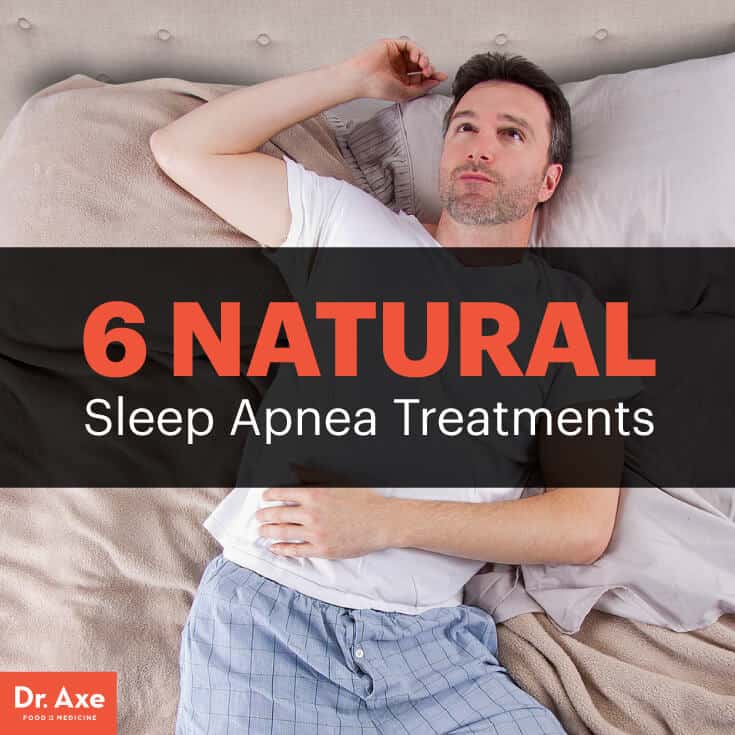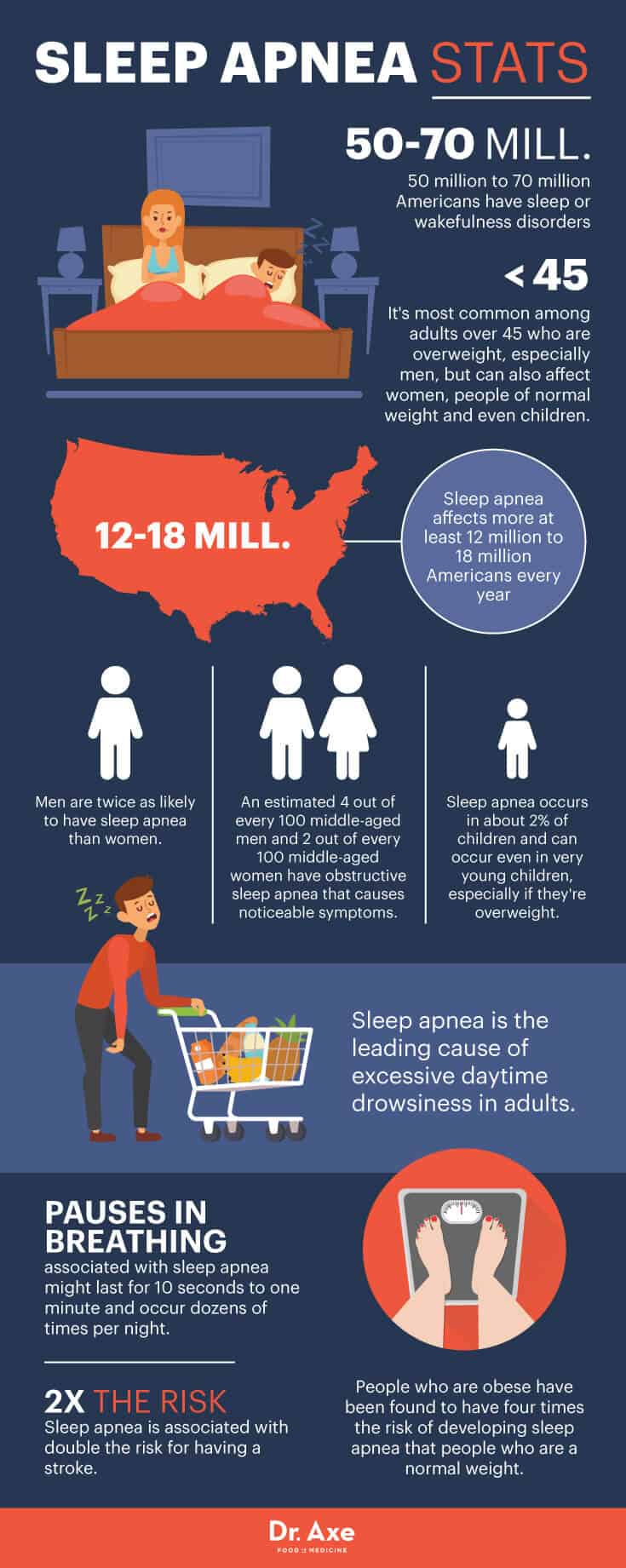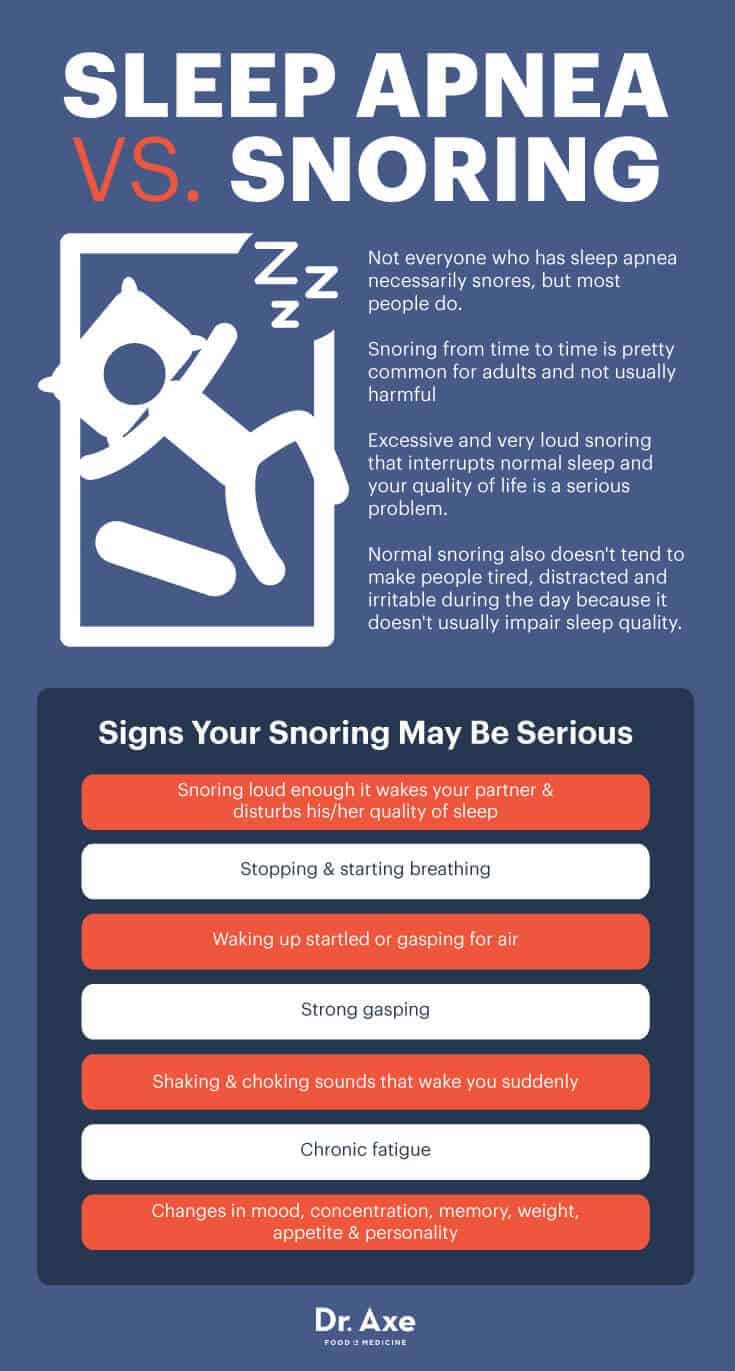This Dr. Axe content is medically reviewed or fact checked to ensure factually accurate information.
With strict editorial sourcing guidelines, we only link to academic research institutions, reputable media sites and, when research is available, medically peer-reviewed studies. Note that the numbers in parentheses (1, 2, etc.) are clickable links to these studies.
The information in our articles is NOT intended to replace a one-on-one relationship with a qualified health care professional and is not intended as medical advice.
This article is based on scientific evidence, written by experts and fact checked by our trained editorial staff. Note that the numbers in parentheses (1, 2, etc.) are clickable links to medically peer-reviewed studies.
Our team includes licensed nutritionists and dietitians, certified health education specialists, as well as certified strength and conditioning specialists, personal trainers and corrective exercise specialists. Our team aims to be not only thorough with its research, but also objective and unbiased.
The information in our articles is NOT intended to replace a one-on-one relationship with a qualified health care professional and is not intended as medical advice.
6 Natural Treatments for Sleep Apnea Symptoms
May 12, 2016

Sleep apnea is a disorder that causes poor sleep quality due to uncontrollable pauses in breathing, taking shallow breaths during sleep and suddenly waking up startled. During the night, someone with sleep apnea might repeatedly stop breathing up to 30 times every hour, often for very brief moments of time and without the person being aware of it at all. In fact, a scary finding is that many people with sleep apnea think that they actually get good sleep!
This is alarming it’s more than just heavy snoring — it’s a serious medical diagnoses, even potentially life-threatening, and can lead to various negative symptoms and a decreased quality of life. Because breaks in normal breathing cause less oxygen to make its way to the brain and elsewhere around the body, people with sleep apnea are triggered to wake up suddenly out of sleep and gasp for air in order to reopen their airways. The entire start-and-stop breathing process associated with sleep apnea can cause symptoms, including loud snoring, choking noises, poor sleep and feelings of fatigue and anxiety during the day.
Missing sleep can take years off your life. Long-term complications of sleep apnea can include an increased risk for heart disease, stroke, diabetes, obesity, depression, memory problems, viruses and sexual dysfunction. (1) Sleep disturbances have also been correlated with car accidents, poor job performance, low grades in school and higher susceptibility to common colds and the flu.
Many people with sleep apnea use a breathing mask to help control symptoms, but this won’t stop the underlying problems associated with sleep apnea, including inflammation of the throat muscles. Fortunately, sleep apnea can be treated and prevented by making lifestyle modifications, including losing weight, reducing inflammation, improving your diet and starting a regular exercise routine.
Diagnosing Sleep Apnea
To confirm whether or not you have sleep apnea, a sleep study test called the polysomnogram will need to be performed. The sleep apnea test consists of multiple tests that record and transmit your physical activities while you sleep. Surface electrodes are placed on your face and scalp to record electric signals, and belts placed around your chest and abdomen record your breathing. An oximeter probe is placed on your finger to record and measure the amount of oxygen in your blood. The health practitioner then analyzes the records to determine whether or not you have sleep apnea or another disorder. The polysomnogram can be taken in a sleep center lab, hospital or even at home if your case is considered less complicated. (2)
Typically, sleep specialists are required to provide effective care for sleep apnea. However, a 2018 study suggests non-sleep specialists can manage and diagnose obstructive sleep apnea and provide equally adequate and effective care for the condition. Researchers gathered the information from five randomized trials and seven observational studies and found that the diagnostic testing and severity classification of the sleep apnea were accurate with both specialists and non-specialists. (3)
Related: Sleep Meditation Benefits + How to Do It
Natural Sleep Apnea Treatment
1. Reach and Maintain a Healthy Weight
One reason that weight gain increases your risk for sleep apnea so much is because it makes it more likely that you’re essentially gaining weight on the inside of your neck, which affects your throat muscles and breathing capabilities. The more overweight you are, the more likely you are to have sleep disturbances since fat deposits around your upper airway can obstruct normal breathing. Some experts recommend getting a measurement of your collar size and neck circumference. If you’re a man with a neck circumference over 17 inches (43 centimeters) or a women over 15 inches (38 centimeters), you have a significantly higher risk for sleep apnea.
And unfortunately struggling with obesity, getting poor sleep and having sleep apnea all seem to be a part of a vicious cycle, since a lack of sleep can mean lack of weight loss. Not only does obesity increase sleep apnea risk, but sleep apnea can also contribute to many of the same diseases that obesity does. Research shows that sleep apnea adversely affects multiple organs and systems and is associated with cardiovascular disease, insulin resistance, systemic inflammation, visceral fat deposition and dyslipidemia. (4)
If you’re overweight or obese, a reasonable goal to aim for is losing about 10 percent of your body weight. This amount has been shown to help reduce symptoms because it can help prevent your airways from collapsing while you sleep and reduce inflammation around the throat muscles. (5) Tips for reaching and staying at a healthy body weight include:
- Eat a high-fiber diet: Some of the best sources of dietary fiber include fresh vegetables, fruit, nuts, seeds, sprouted beans or legumes, and ancient whole grains. Aim for at least 25–30 grams daily.
- Use healthy fats and eat enough protein: Coconut oil has natural fat-burning effects, plus many more benefits like improving gut health too. Other healthy fats that can help control your appetite include real olive oil, avocado, fats from grass-fed beef, nuts and seeds. Protein foods are satisfying and essential for building muscles as well. Regularly include proteins like cage-free eggs and wild-caught fish in your meals.
- Utilize adaptogen herbs: Adaptogen herbs like maca, ginseng and rhodiola can help control health conditions that can make it hard to lose weight (like high amounts of stress, thyroid issues, leaky gut, adrenal fatigue, cellular toxicity and candida).
- Get regular exercise: Exercise is a prescription for good sleep. It helps regulate hormones, adds muscle mass, burns calories and can break up nasal congestion. Try to get at least 30 minutes of moderate activity, such as a brisk walk, most days of the week.
- Sneak more exercise in and switch up your routine: Stand more during the day, try burst-training exercises and other forms of high-intensity interval training (HIIT) to keep challenging your muscles, take group classes, add in weight training, and relax with yoga in between workouts.
- Try using essential oils for weight loss: Natural oils, including grapefruit, cinnamon and ginger oil, can help control your appetite, hormones and digestive symptoms.
2. Avoid Excessive Alcohol, Smoking and Overuse of Sedatives
Alcohol has been shown to interfere with sleep quality and can also relax the throat muscles, including the uvula and palate, which are needed to help control breathing. Over-the-counter sleep aids, sedatives and prescription tranquilizers can have the same effects. This can lead to worsened snoring and other symptoms, plus more grogginess during the day.
Both smoking and alcohol can also contribute to inflammation and fluid retention in the airways, which disturbs normal sleep. Smokers are three times more likely to have obstructive sleep apnea than are people who’ve never smoked, just in case you needed another reason to quit. (6) Work on quitting smoking, and if you do drink, plan not to have any drinks at least three hours before going to bed.
3. Treat Acid Reflux, Congestion and Coughs
Many people suffering from sleep apnea and heavy snoring also have other medical problems that interfere with normal breathing, including acid reflux/heartburn, congestion and chronic coughs. Nasal congestion leads to difficulty breathing through the nose and can worsen symptoms or even contribute to the development of obstructive sleep apnea.
In the case of esophageal reflux, it’s possible that acid is making its way to your throat and voice box, where it causes irritation and swelling around certain throat muscles. Coughs might also irritate your upper airways and increase snoring. Adjusting your diet, reducing exposure to allergies and raising your head while sleeping can help reduce reflux and congestion.

4. Humidify Your Bedroom
Some people report decreased snoring, less congestion and clearer breathing when they sleep with a humidifier in their bedrooms. A humidifier might be able to help encourage your sinuses to drain and more air to move through your airways. You can also rub essential oils such as eucalyptus oil (the same kind used to make Vicks VapoRub) on your chest before sleeping to help naturally open your airways and soothe a stuffy nose or throat.
5. Adjust Your Sleeping Position
Elevating your head while sleeping might be able to help lower snoring. It’s also a good idea to avoid sleeping on your back, which has been shown to make snoring and symptoms worse because it presses your tongue and palate tissue against the back of your throat.
According to the University of Maryland Medical Center, sleeping on your side using a pillow that keeps your head slightly raised is usually the best sleep position to alleviate sleep apnea symptoms. (7) A second option is to sleep on your stomach as opposed to your back.
6. Consider Using a Snore Guard or Sleep Device Temporarily
While you ultimately want to resolve the problems causing your sleep apnea symptoms in the first place, you can temporarily help control snoring by using an expensive, over-the-counter device called a snore guard that you insert into your mouth. Snore guards work by boiling the pliable device and fitting it into your mouth, so it helps bring your lower jaw forward slightly and keeps your airways more open.
Other people who suffer from chronic snoring might choose to use more expensive and permanent devices, such as a mandibular advancement device, which is inserted by a dentist into your mouth and lasts for several years.
Sleep Apnea Statistics
- 50 million to 70 million Americans have sleep or wakefulness disorders, and sleep apnea affects more at least 12 million to 18 million Americans every year.
- It’s most common among adults over 45 who are overweight, especially men, but can also affect women, people of normal weight and even children. (8)
- Men are twice as likely to have sleep apnea than women. But women have a high chance too if they become obese, are going through menopause or drink excessive alcohol and smoke. (9)
- It’s estimated that four out of every 100 middle-aged men and two out of every 100 middle-aged women have obstructive sleep apnea that causes noticeable symptoms. Studies show that sleep apnea occurs in about 2 percent of children and can occur even in very young children, especially if they’re overweight.
- According to the National Institute of Health, sleep apnea is the leading cause of excessive daytime drowsiness in adults (10)
- Pauses in breathing associated with sleep apnea might last for 10 seconds to one minute and occur dozens of times per night.
- A Yale University study found that sleep apnea is associated with double the risk for having a stroke! It can also increase blood pressure, risk for blood clots and other cardiovascular diseases.
- People who are obese have been found to have four times the risk of developing sleep apnea that people who are a normal weight.
Sleep Apnea Symptoms
The most common symptoms and signs of sleep apnea include: (11)
- snoring loudly, especially if the snoring is punctuated by silence (pauses in all breathing and sound)
- feeling like you’re always tired or drowsy, even after getting a full night’s sleep (also called hypersomnia, which is excessive daytime sleepiness)
- waking up suddenly or abruptly and feeling startled by a loss of breath (called “episodes of breathing cessation”)
- Experiencing pausing in breathing or flow of air (called “hypoapnea”) — pauses in breath happen more than four to five times per hour and in severe cases can occur almost every minute during the night (12)
- other people reporting that you’re breathing abnormally while sleeping (starting and stopping normal breathing or snoring)
- shortness of breath when waking up
- night sweating and frequent urination
- waking up with a dry mouth, sore throat or bad breath
- having tension headaches
- struggling with other sleeping problems, including have trouble falling or staying asleep (insomnia)
- experiencing trouble concentrating, poor memory and brain fog during the daytime (even having a hard time driving or performing other tasks)
- becoming more irritable, anxious and depressed than usual due to a lack of sleep
- having lower immune function and higher risk for other disorders as a side effect of hormonal imbalances
Sleep Apnea vs. Snoring: How to Tell the Difference
Not everyone who has sleep apnea necessarily snores, but most people do. While snoring from time to time is pretty common for adults and not usually harmful, excessive and very loud snoring that interrupts normal sleep and your quality of life is a serious problem. How can you tell the difference between sleep apnea and simply “normal snoring”?
First and foremost, your spouse or partner (or anyone else who sleeps in close proximity to you) might be able to help clue you in on your own sleeping habits. Do they notice you snoring loud enough that it wakes them up repeatedly and disturbs their sleep quality too? Do they report that you’re stopping and starting breathing, waking up startled or gasping for air? If you’re struggling with sleep apnea, your snoring might take on other forms that aren’t normal, including strong gasping, shaking and choking sounds that wake you up suddenly. If no one sleeps close enough to you to report symptoms, try using a tape recorder to track your own breathing sounds while you’re sleeping.
Normal snoring also doesn’t tend to make people tired, distracted and irritable during the day because it doesn’t usually impair sleep quality. Chronic fatigue is one of the biggest signs of poor sleep quality due to sleep disturbances like sleep apnea. If you notice changes in your concentration, mood, memory, weight, appetite and personality (for example, you’re dosing off when watching TV, having trouble completing tasks at work and getting angry with people more easily), then you might have sleep apnea.
If a family member notices you having any of the hallmark sleep apnea symptoms described above or you find yourself feeling overly drowsy and cranky during the day, it’s a good idea to consult your doctor to talk about whether or not your snoring might be a bigger medical problem. Visiting a sleep clinic is another option, where a professional can track your symptoms and investigate a potential cause.

Related: Causes of Oversleeping (+ Dangers of Sleeping Too Much)
What Causes Sleep Apnea?
Risk factors for sleep apnea include:
- Obesity and being overweight (13)
- Older age — sleep apnea is much more common in adults than in children or teens, and the risk keeps increasing over the age of 45
- Being a male
- Having a narrowed airway or congestion — a narrowed airway can be inherited or caused by your chronic congestion, enlarged tonsils and swollen adenoids due to illnesses
- Having a family history of sleep disorders
- Excessive use of alcohol and smoking cigarettes
- Frequently taking sleep-aiding drugs, sedatives or tranquilizers
- Having a history of medical complications, including heart disease, stroke, autoimmune disorders or thyroid disorders
- Using narcotic pain medications (including opioid medications and methadone)
There are three main types of sleep apnea, which are triggered by different things but can cause similar symptoms and complications. Symptoms of the two most common types, called obstructive and central sleep apnea, are very similar, which sometimes makes it hard for doctors to determine which type is causing the disorder.
- Obstructive sleep apnea: This is most common type that develops due to abnormal relaxation of muscles in the throat and tends to cause the loudest snoring. Normally, the throat muscles support breathing by relaxing and tensing parts of your mouth and esophagus that allow for air to pass through. The throat muscles control important body parts responsible for breathing, including “the soft palate” tissues in your mouth, the tonsils, the side walls of the throat and the tongue. Abnormal relaxation of the throat muscles causes shortness of breath during sleep, which can cut off oxygen supply and trigger your brain to keep waking you up in order to gasp for air. At the same time, it can cause other problems like a lowered pulse and lowered blood pressure. (14)
- Central sleep apnea: This type is less common than obstructive sleep apnea, but the two are also related. It occurs when your brain stops sending normal signals to your muscles that help control breathing. Unknowingly, people with central sleep apea make no effort to breathe for short periods of time because their throat muscles don’t know to contract while they’re sleeping, which leaves them short of breath.
Complex sleep apnea syndrome: This type is diagnosed when someone has both obstructive sleep apnea and central sleep apnea at the same time.
Final Thoughts on Sleep Apnea
Sleep apnea is a disorder that causes poor sleep quality due to uncontrollable pauses in breathing, taking shallow breaths during sleep and suddenly waking up startled. During the night, someone with sleep apnea might repeatedly stop breathing up to 30 times every hour, often for very brief moments of time and without the person being aware of it at all. In fact, a scary finding is that many people with sleep apnea think that they actually get good sleep!
About 50 million to 70 million Americans have sleep or wakefulness disorders, and sleep apnea affects more at least 12 million to 18 million Americans every year.
Not everyone who has sleep apnea necessarily snores, but most people do. While snoring from time to time is pretty common for adults and not usually harmful, excessive and very loud snoring that interrupts normal sleep and your quality of life is a serious problem.
Many people with sleep apnea use a breathing mask to help control symptoms, but this won’t stop the underlying problems associated with sleep apnea, including inflammation of the throat muscles. Fortunately, sleep apnea can be treated and prevented by making lifestyle modifications, including losing weight, reducing inflammation, improving your diet and starting a regular exercise routine.
In addition, you want to maintain a healthy weight; avoid excessive alcohol, smoking and overuse of sedatives; treat acid reflux, congestion and coughs; humidify your bedroom; adjust your sleeping position; and consider using a snore guard or sleep device temporarily to treat sleep apnea symptoms.








